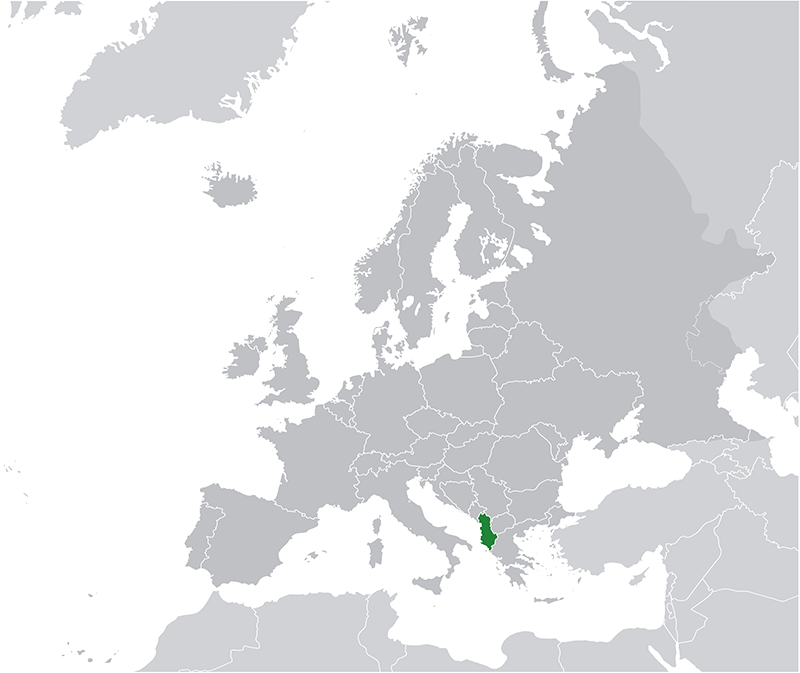
- Population:
- 2,792,000
- Religion:
- Islam
Located on the Balkan Peninsula, Albania's history dates back to the ancient Illyrians, an Indo-European people. Over centuries, it fell under Roman, Byzantine, and Ottoman dominions, each leaving an indelible mark on its culture and society. In 1912, Albania declared independence from the Ottoman Empire, establishing itself as a sovereign nation. The 20th century witnessed periods of monarchy, Italian occupation during World War II, and a subsequent communist regime. Post-1991, Albania transitioned to democracy, integrating into European and global institutions.
Albania, officially the Republic of Albania, is a country in Southeastern Europe on the Balkan Peninsula. It is bordered by Montenegro to the northwest, Kosovo to the northeast, North Macedonia to the east, Greece to the south, and has a coastline along the Adriatic Sea to the west and the Ionian Sea to the southwest. Covering an area of 28,748 square kilometers, Albania has a diverse landscape ranging from coastal plains to mountainous regions. The capital and largest city is Tirana. As of recent estimates, Albania has a population of approximately 2.8 million people. The official language is Albanian, and the country has a rich cultural heritage influenced by Illyrian, Greek, Roman, and Ottoman civilizations. Albania declared its independence from the Ottoman Empire in 1912. In the 20th century, it experienced a communist regime under Enver Hoxha, transitioning to democracy in the early 1990s. The economy has since been developing, with key sectors including agriculture, manufacturing, and services, particularly tourism. Albania is a member of the United Nations, NATO, and has been a candidate for European Union membership since 2014.






